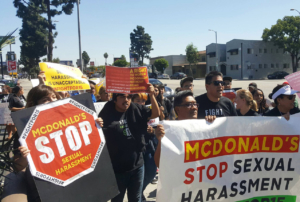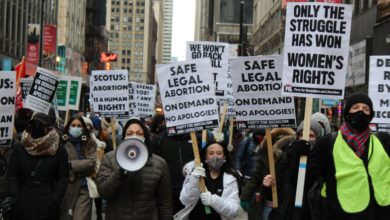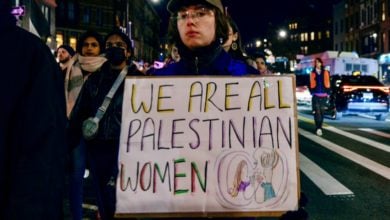
Me too.
“If all the women who have been sexually harassed or assaulted wrote “Me too.” as a status, we might give people a sense of the magnitude of the problem.”
Versions of this status went viral on Facebook as part of a mass response triggered by the exposure of Harvey Weinstein’s decades of sexual harassment and assault, as numerous now-prominent women actors have stepped forward to say they too were harassed and assaulted by Weinstein. The #MeToo Movement was originally launched some 10 years ago by activist by Tarana Burke.
The massive, viral posting of “Me too” or #MeToo sheds light on just how prevalent sexual harassment and sexual assault actually are. For women (including transwomen and those perceived as women regardless of gender identity) sexual harassment and assault are nearly universal experiences. It would be safe to say that if a woman hasn’t posted “me too” on her status, it is more likely an indication that she feels uncomfortable or unsafe in potentially opening herself up to people asking her about a painful experience, rather than proof that she has never experienced sexual harassment or assault.
This viral phenomenon is helping many women feel empowered to stand up and be counted, which reveals the magnitude of this form of oppression while making the statement: No, this doesn’t just happen to “other” women–it happens for all intents and purposes to ALL women and we are sick and tired of it.
What are sexual harassment and assault?
Sexual assault is a sexual act in which a person is coerced or physically forced to engage against their will, or non-consensual sexual touching of a person. (Wikipedia)
The United States Equal Employment Opportunity Commission defines workplace sexual harassment as “unwelcome sexual advances, requests for sexual favors, and other verbal or physical conduct of a sexual nature constitute sexual harassment when this conduct explicitly or implicitly affects an individual’s employment, unreasonably interferes with an individual’s work performance, or creates an intimidating, hostile, or offensive work environment.” (EEOC)
Sexual harassment can also occur outside the workplace, for instance in schools, faith or community organizations, among neighbors and on public transportation.
While many have simply typed in “Me too,” some have gone into more depth. Nathalie Hrizi, editor of the magazine Breaking the Chains: A Socialist Perspective on Women’s Liberation posted:
Not gonna say me too. Not because it isn’t true. But because it is true and has been true for so long.
How long have we been saying me too in whispers in school bathrooms and sobs in our homes and the corners of cafes with those we trust? I’m proud of all the people stepping up to be seen for something that we are told is our fault. I’m sad to see what I already knew made visible. That it affects us constantly and in a myriad of ways. #metoo should be a clarion call. A call to action.
It is notice of an epidemic, an omnipresent yet unacknowledged epidemic of violence that is not perpetrated only by individuals but by the system that makes us whisper and sob while we go unnoticed and perpetrators go unpunished. That enables violence and violation to continue with impunity. That blames us when we speak out. That tells us to just stay away from our attacker so he can keep playing his sports and being a parent or uncle and building his career. That silences us and wills us into dark corners and pits of depression and self loathing.
#metoo is only a beginning. It seems very powerful. But can’t be more unless we make it more. Unless we shape our solidarity and struggle and anger and injustice into fight, into organizing, into resistance.
I said #metoo when I joined the struggle, becoming a part of a movement of people that are working, and working hard, for a world in which we don’t have to say me too because we are already heard. That’s why I became a socialist. That’s why I joined the Party for Socialism and Liberation.
Sexual harassment and assault are endemic to the violent system of capitalism, in which the bourgeoisie benefit from the oppression of women, and sexual violence is a tool in maintaining that oppression. In this society, women must spend their valuable time and energy just trying to avoid sexual violence, or dealing with the emotional and physical consequences of such violence. It is like carrying around a heavy weight all day, every day, an experience illustrated by the art project of the Columbia University student who carried around her mattress after a student she said had raped her rapist was cleared by the university.
(It is no surprise that the accused rapist then sued the university for his “pain and suffering” and has since reached an undisclosed settlement!)
It is not accidental that the courts, the police and politicians do nothing to address this problem. In fact, on a regular basis the courts, police and politicians are themselves the perpetrators and protectors of perpetrators. Sexual assault/harassment is a systemic issue that will be solved when we change the system. When women are truly empowered and their revolutionary power unleashed, the perpetrators will tremble in the face of true people’s justice.





